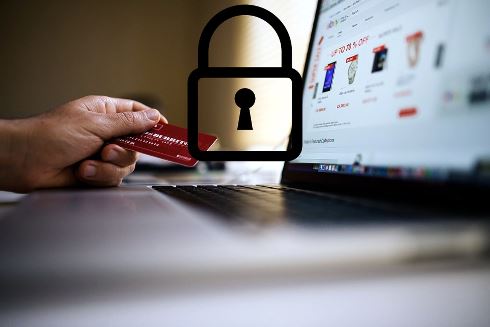As a business, you have an obligation to secure your online payment processes for convenient transactions and fraud prevention. Since payment security is hinged on meeting the latest compliance requirements, you have the mandate of consistently keeping up with these standards. Here, we look at seven online payment safety practices for businesses.

1. Automate credit card validation
Credit card fraud is a major concern today as cybercriminals have found ways to attain or generate credit card numbers for use in illegal online transactions. To proactively prevent this fraud, you need to introduce an extra layer of security by automating credit card validation. The best way to accomplish this is by using a credit card scanner that offers a fast and reliable remote authentication process for safer debit and credit card transactions.
2. Secure your website with SSL
One of the first steps you need to take to secure your online payments is implementing SSL protocols. This entails getting an SSL certificate that helps provide encrypted connections, making it safer for customers to send critical financial information through your site. It gets better as once you are SSL-certified, a padlock icon will be provided in your URL bar to show customers that the website is safe for online transactions.
3. Embrace data encryption and tokenization technologies
The surest to protect your data is through encryption, and when handling online payments, this needs to be a fundamental process. Data encryption ensures that all sensitive information is inaccessible to unauthorized third parties by converting electronic data into coded messages.
On the other hand, tokenization protects sensitive data such as credit card account numbers by transforming it into a random combination of characters. These tokens do not have any value as they are only references to the original data and cannot be misused even in the event of a breach.
4. Use secure payment solutions
A key focus when it comes to ensuring online payment safety is finding a reliable payment service provider. This directly dictates how secure your payment channels will be since you will be relying on the provider’s payment technologies and anti-fraud measures to protect your business. Keep safe by working exclusively with reputable payment service providers who do not have a history of data breaches, severe attacks, or customer complaints.
5. Actively monitor customer transactions
A foolproof way of preventing payment fraud is by actively monitoring your customer’s transactions. Taking notes of trends in customer behavior is a reliable way of weeding out suspicious activities and maintaining transaction reputation. For example, in the event of a sudden large purchase, you could send an alert email or SMS to the client through a trusted channel to notify them of unusual activities in their accounts. This will help prevent impersonation fraud as it provides sufficient time and a reliable medium for managing disputes.
6. Have a reliable fraud management system
Investing in a fraud management system is the cornerstone of building secure online payment systems. The active protection provided by these systems through automated transaction screening, reducing false positives, and real-time tracking of customer behavior will offer all-around payment security.
7. Meet your PCI-DSS level compliance
There are four distinct levels of PCI-DSS compliance that are primarily dictated by the number of transactions in your process every year. It is essential to know your level as this determines the compliance standards that you need to meet. Typically, a level 1 business has the most stringent requirements, while a level 4 business has the least. Regardless of your level, knowing and meeting your compliance requirements is the most efficient way of avoiding any loopholes that might lead to transaction fraud and legal complications.
Endnote
If you accept online payments, it is vital to implement these safety practices to prevent fraud and maintain your transaction reputation.


